Have you ever heard a husky let out a wild, echoing “woo-woo” that sounds more like a wolf’s operatic solo than a dog’s bark? It’s almost shocking, right? There’s something haunting and hilarious about the way huskies communicate. While most dogs bark or whine, huskies seem to have their own language—one that’s loud, unapologetic, and often downright theatrical. This unique behavior leaves many owners and dog lovers wondering: why do huskies yell instead of “speaking” like other dogs? Let’s pull back the curtain on this vocal phenomenon and discover what’s really going on in those blue-eyed, talkative heads.
Huskies Aren’t Like Other Dogs: The Wild Legacy
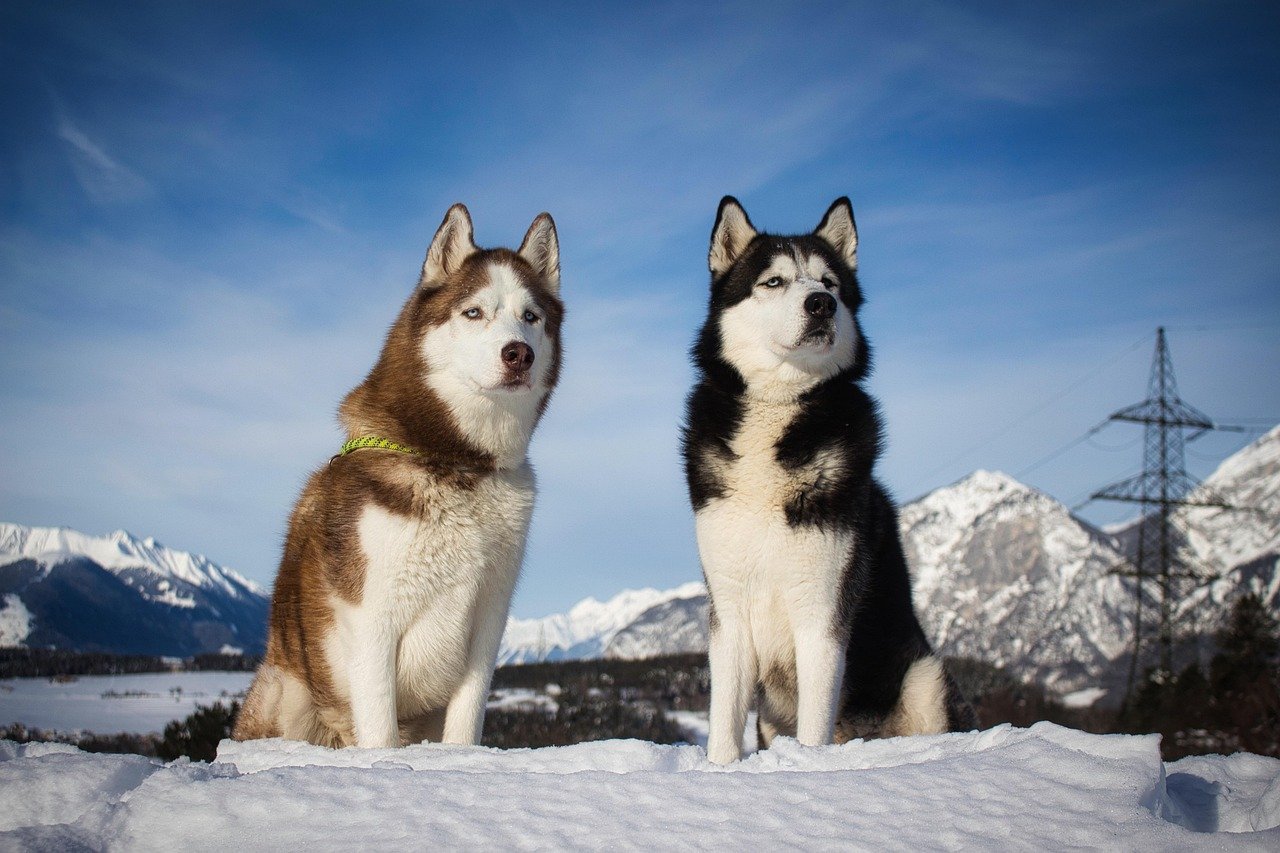
If you’ve ever spent time with a Husky, you know they don’t just bark—they yell. These dramatic, talkative dogs are known for their vocal antics that sound more like human complaints than typical canine communication. But why do Huskies seem to shout their feelings rather than speak like other breeds? The answer lies in their unique combination of genetics, working-dog heritage, and high intelligence.
Huskies are anything but ordinary when it comes to their genes. These beautiful dogs are much closer to their wolf ancestors than most other breeds. Because of this, they carry a lot of primitive behaviors, especially in how they communicate. Wolves rely on a range of sounds—howls, whines, yips—to talk to each other across long distances. Huskies have inherited this same instinct. Instead of barking like a retriever or a beagle, huskies use their voices as if they’re trying to reach a friend across a snowy forest. It’s not just noise—it’s a call back to their wild past. Next time you hear a husky yell, imagine a wolf on the tundra, sending out a message to its pack.
The Language of the Pack: Social Communication
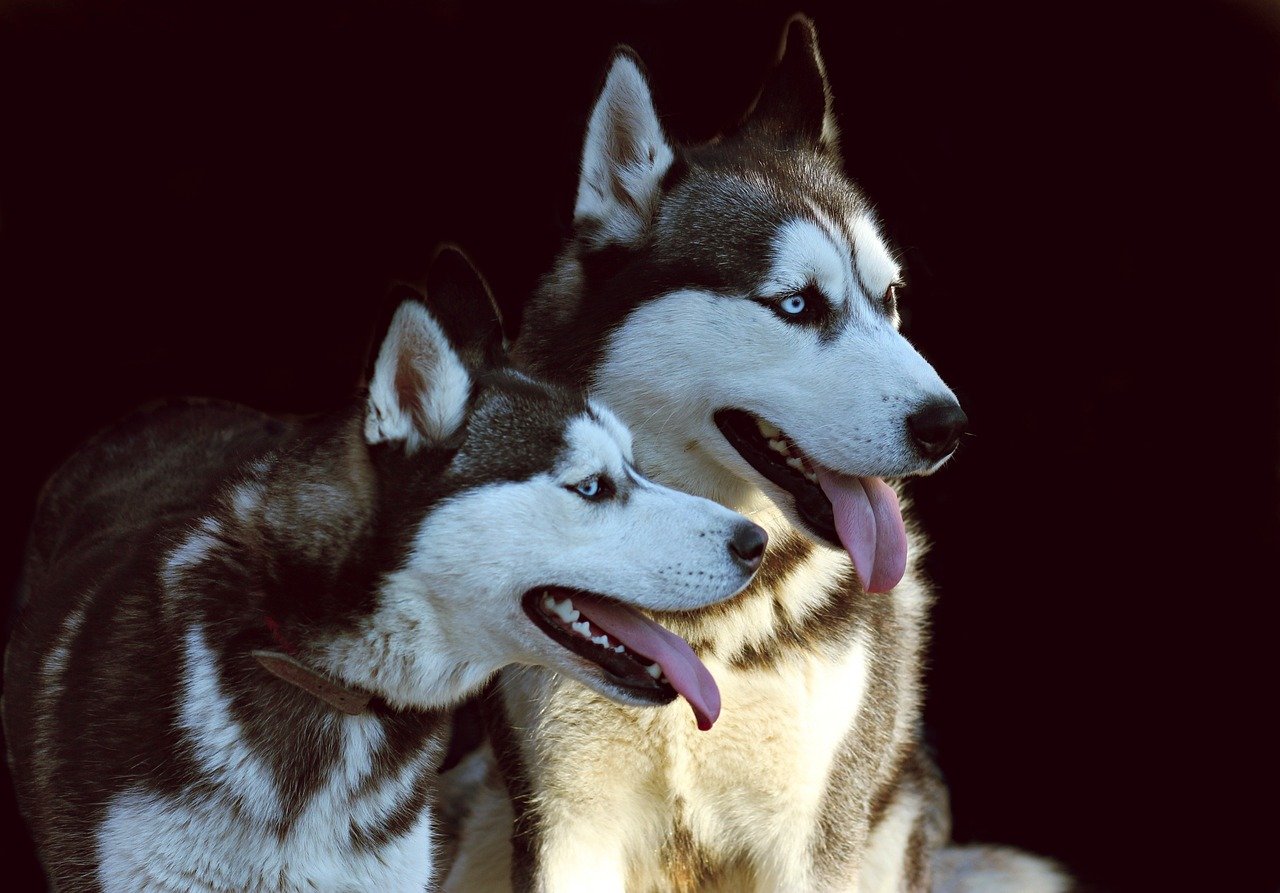
Huskies are pack animals through and through, and their vocal style reflects that. They don’t just use their voices for fun; yelling is a way to communicate with their family, both furry and human. In a pack, everyone needs to know where everyone else is and what’s going on. That’s why huskies are never shy about sharing their feelings out loud. Their yells and howls can mean “I’m here!” or “Where are you?” or even “Pay attention to me!” It’s their way of keeping the social bonds strong. If you have more than one husky, you might notice that their conversations can sound like a full-blown choir practice.
Barking Isn’t Their Thing: The Silent Difference
While most dogs are quick to bark at the slightest provocation, huskies are oddly quiet in this department. They’re not big barkers, and that’s not an accident. In the cold, open spaces where huskies originated, barking wouldn’t carry very far. Yelling, howling, and other loud, drawn-out noises travel much farther. That makes these sounds much more effective for staying in touch over long distances. So, instead of a sharp “woof,” huskies go for something louder and more dramatic. It’s practical, but it’s also pretty entertaining for anyone within earshot.
Expressing Big Emotions: The Drama Queens of the Dog World
If you’ve ever owned a husky—or even watched a few videos online—you know that they’re not shy about their feelings. Huskies use their voices to express everything from joy to frustration. When a husky yells, it’s often because they’re feeling something big and want the whole world to know it. Maybe you’re taking too long with dinner, or maybe they just saw a squirrel. Either way, they’re going to let it out. It’s almost like they’re the drama queens of the dog park, never afraid to make a scene if it means getting their point across.
Attention Seekers: The Need to Be Heard
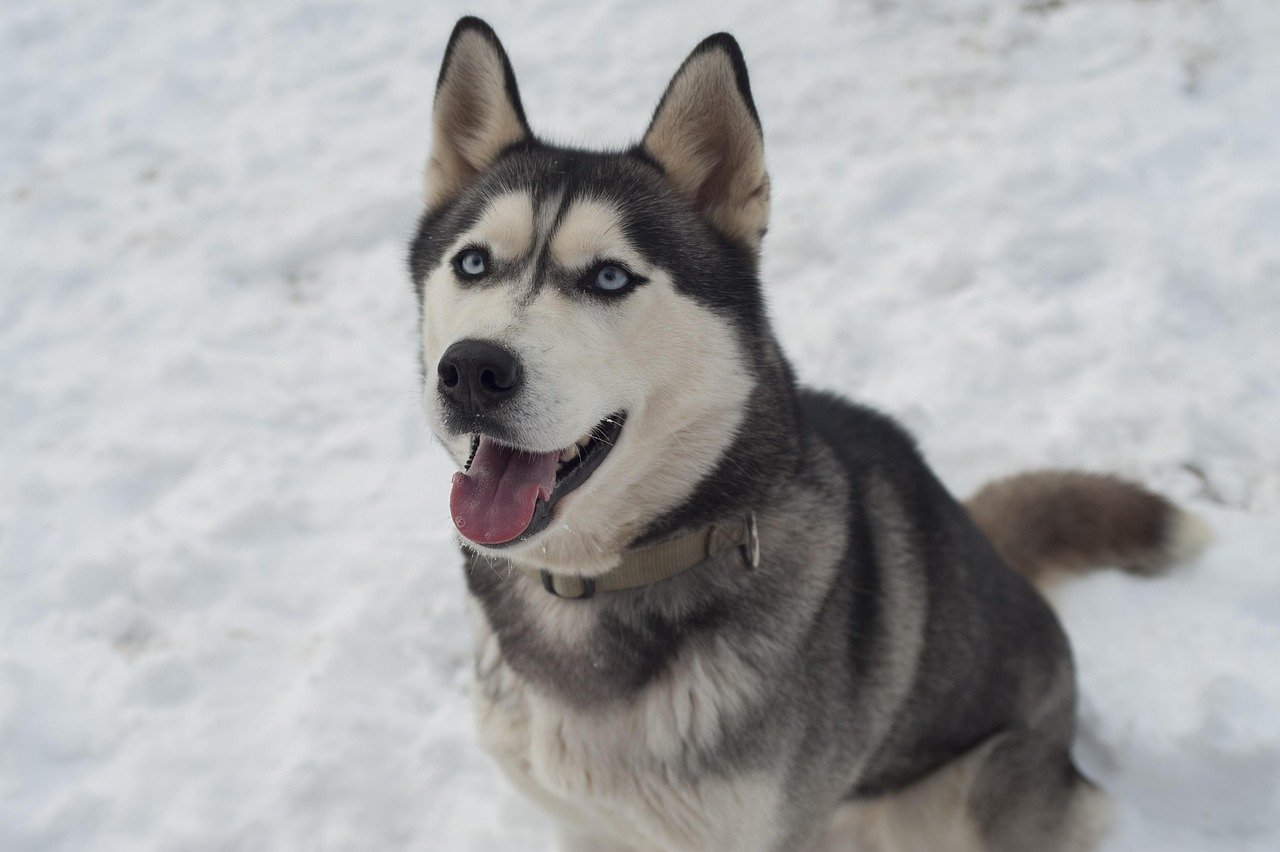
Let’s be honest—huskies love attention. They crave it like kids crave candy. Yelling is one of their favorite ways to make sure all eyes (and ears) are on them. If you ignore a husky, don’t be surprised if they ramp up the volume. They might yell, sing, or even “talk back” if they feel neglected. It’s their way of saying, “Hey, don’t forget about me!” Some owners find this endearing, while others might wish for a little peace and quiet. Either way, a husky’s need to be heard is just part of their lovable, attention-grabbing personality.
The Science of Husky Howling: Genetics at Play
Scientists have found that certain breeds are just wired differently when it comes to making noise. Huskies carry specific genes that make them more likely to howl and yell instead of bark. These genes are linked to their ancient roots and close connection to wolves. When a husky hears a siren, music, or even another dog, those genes kick in, and out comes a howl. It’s not just random noise—it’s a built-in response that’s been passed down for generations. If you think your husky is unique, you’re right, but you’re also witnessing a little bit of ancient history in your living room.
Human Interaction: How Owners Influence the Yelling
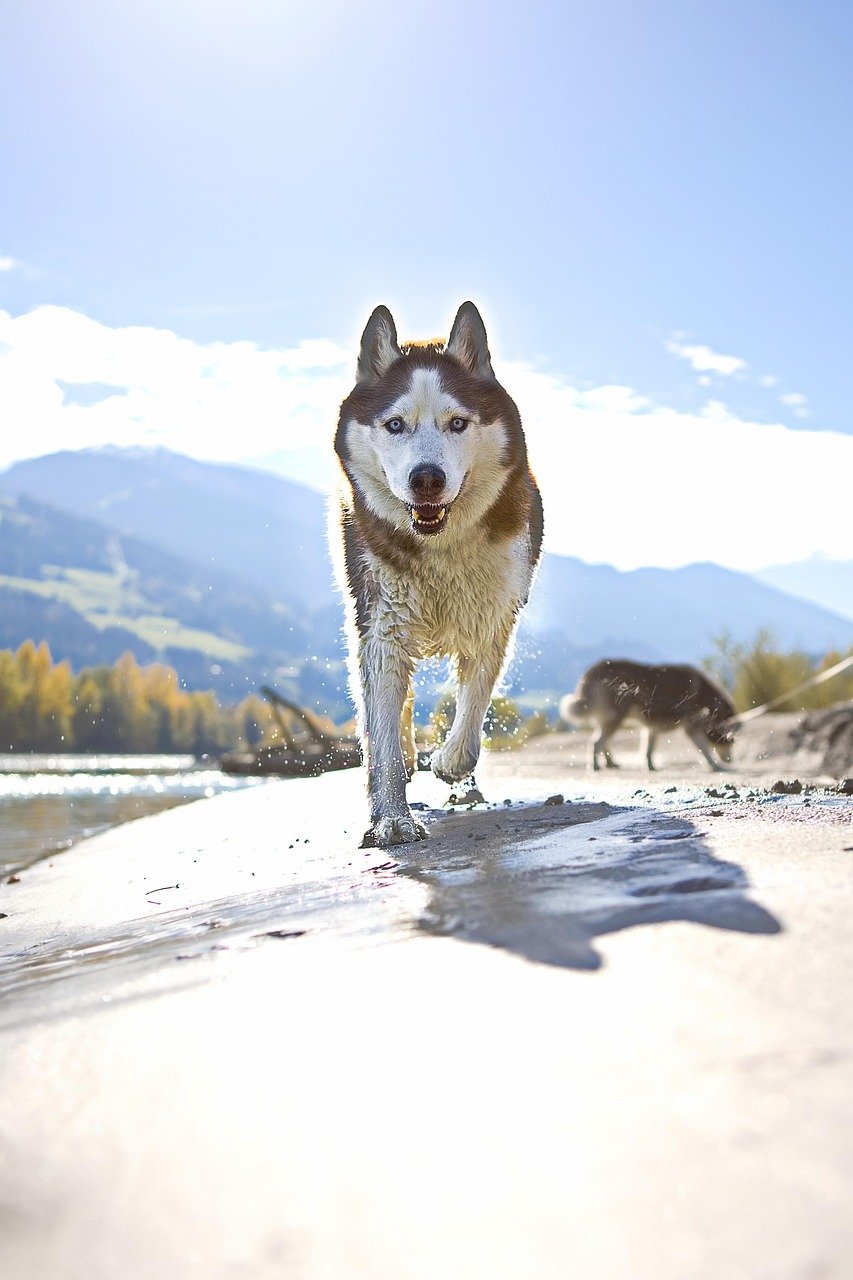
Believe it or not, husky owners play a big role in their dogs’ vocal habits. Huskies are quick learners, and they’re always watching their humans for cues. If you laugh or respond every time your husky yells, they learn that yelling gets a reaction. Some people even encourage it, turning yelling into a fun game or a way to “talk” back and forth. Before you know it, you and your husky are carrying on full conversations—at top volume. It’s a bond like no other, but it can also turn your home into the loudest on the block.
Huskies and Their “Talking”: More Than Just Yelling
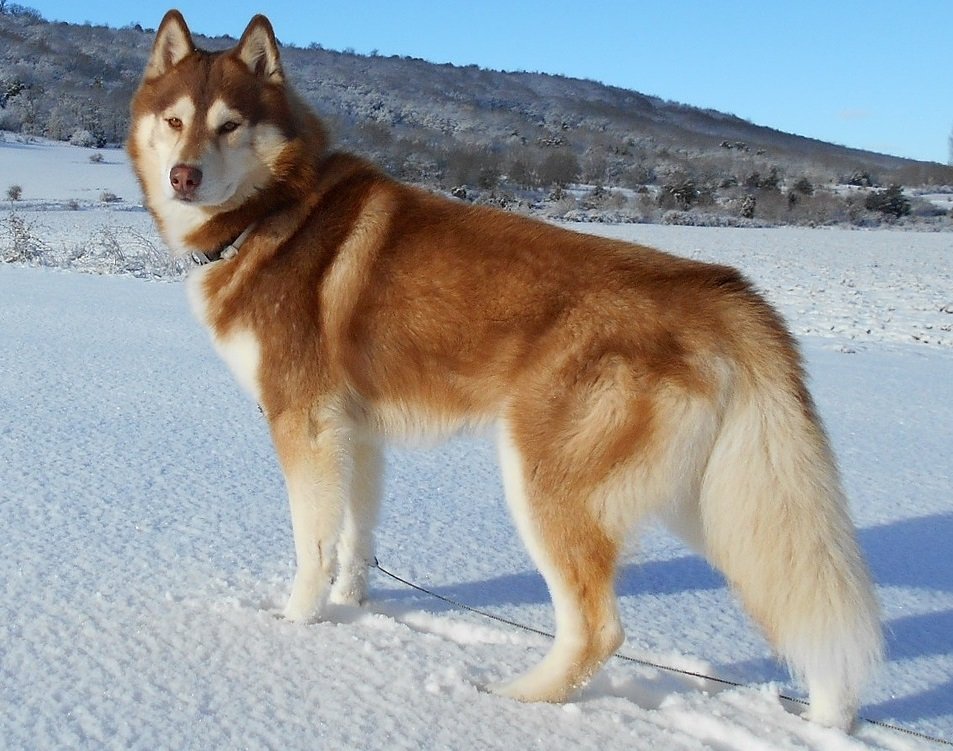
It’s not all about yelling for huskies. These clever dogs have a whole range of sounds in their toolkit—yips, chatters, “woo-woos,” and yes, even the occasional bark. Some huskies are famous for “talking” in ways that almost sound like human words. Owners love to share videos of their dogs saying things like “I love you” or “no.” This isn’t just coincidence; huskies are naturally good at mimicking tones and patterns they hear from their people. It’s their way of fitting into the family conversation, even if it’s a little louder than expected.
Environmental Factors: The Noisy World of Huskies
Where a husky lives can make a big difference in how much they yell. City huskies might be louder, trying to compete with traffic and other sounds, while country huskies might howl at the moon like their ancestors. Changes in routine, new people, or even boredom can all trigger a yelling session. Huskies are sensitive to their environments, and their voices reflect how they feel about what’s going on around them. If you ever move or make big changes at home, don’t be surprised if your husky has a lot to say about it.
Training and Managing the Yelling: Can You Quiet a Husky?
Many husky owners wonder if it’s possible to train their dogs to be a little quieter. The truth is, you can help manage the yelling, but you probably can’t ever stop it completely. Positive reinforcement works best—reward quiet moments with treats and attention, and try to ignore the yelling when possible. Giving your husky plenty of exercise and mental stimulation can also help cut down on boredom-driven noise. Some people teach their huskies to “speak” on command and then “quiet” as a fun trick. With patience and consistency, you can find a good balance, but a totally silent husky is a rare unicorn.
Living With a Husky: Embracing the Noise
Sharing your life with a husky means accepting that you’ll never have a quiet house. But honestly, would you really want it any other way? Their wild yells and dramatic conversations are part of what makes them such unforgettable companions. If you’ve ever been serenaded by a husky, you know it’s impossible not to smile—or sometimes laugh out loud—at their antics. Their voices are a constant reminder of their wild heritage and their colorful personalities. Living with a husky is never boring, and every yell is proof that you’ve got a true original at your side.
Huskies don’t just make noise—they express themselves in ways that reflect their intelligence, independence, and emotional sensitivity. Their signature “yelling” isn’t disobedience or defiance, but rather a deeply rooted form of communication shaped by generations of working in packs and harsh climates. Understanding why Huskies vocalize the way they do can help strengthen your bond with them and ensure their emotional and mental needs are met. So, the next time your Husky belts out a dramatic howl, remember—it’s just their way of having a heartfelt conversation.

Born and bred in South Africa, a Capetonian at heart. Amy-Leigh’s love for nature and animals was inherited from her Dad. He loves taking the family on road trips to experience nature at its finest; Amy-Leigh’s favourite being whale watching in Hermanus and spotting Kudu along the West Coast. Amy-Leigh holds a BA in English Literature and Communication Studies.





